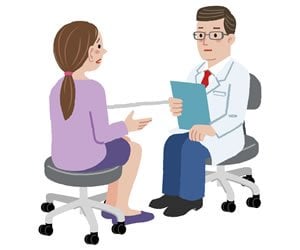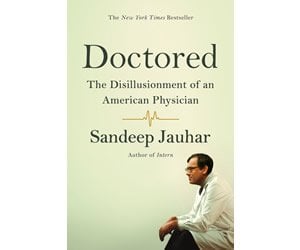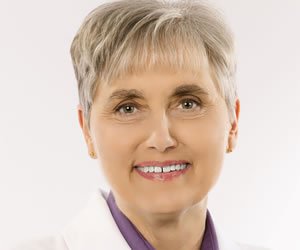The advent of the Affordable Care Act was meant, in part, to help to increase the access that all Americans have to healthcare providers. However, while this has meant that a larger number of families now have health insurance, there is still a long ways to go before equitable access to healthcare is achieved.For medical students who will be coming into practice in the near future, an understanding of this issue and why it is important is a critical beginning to producing new physicians that are aware of the problem and are willing to be both proactive and creative when it comes to finding solutions to it. This article covers health care disparity and why it is important, as well as practical solutions to help close the gap of access to medical care in America.
medicine
The Power of the Patient-Doctor Bond: A Conversation with Michael Clearfield, DO
Some people develop the passion for medicine at an early age. Michael Clearfield, DO, was not one of them – but once he did find that passion, he ran with it for miles.Although he’d been interested in science and math throughout college, and had a vague feeling that “something in healthcare would be something I’d be interested in,” it was ultimately a personal experience that cemented his future career goals. “Some personal issues happened in our family, where people got ill, and I was able to experience the healthcare team as it impacts you as an individual,” he told SDN at last year’s UC Davis Pre-Health Conference (UCDPHC15), where he delivered a keynote on opportunities in osteopathic medicine. “There were some very startling revelations to me; some positive, some negative – seeing how the system worked, and how it didn’t – and I decided that [medicine] would be a career that I would like to try and make a difference in.”
The Best Online Resources for Medical Students
Updated on July 1, 2021. The article was updated to correct minor grammatical errors and … Read more
What You Should Know: Talking to Parents about their Obese Children
According to the Center for Disease Control, childhood obesity is reaching what some are calling … Read more
What You Should Know: Talking to Your Patients About Their Mental Health
Even student doctors who have not yet completed all of their medical training have probably realized that awkward, difficult or delicate conversations are part and parcel of a physician’s practice, and for a number of different reasons. Few conversations you will likely to have with your patients can feel more uncomfortable–for patient and doctor both–than those involving a patient’s mental health. Despite energetic advocacy for the mentally ill in recent decades, the stigma of mental illness remains and many patients may feel embarrassed, upset, or ashamed to discuss these issues with their healthcare providers. A doctor who is comfortable with this topic and can put their patient as ease, however, can more easily screen patients for mental health disorders and, more importantly, get them referrals and contact with community resources that many of them so desperately need.
But how do you start this conversation?
5 Soft Skills Every Pre-Med Student Needs
Though the emphasis of the medical school application process lies on academic achievement, there are a number of personal qualities that pre-medical students should strive to develop if they wish to become superior physicians. The development of these soft skills may also make students more competitive medical school applicants when they are evident in interviews and letters of recommendation. Such soft skills include:
1. The ability to work effectively in a team
Modern medicine requires immense coordination between various clinicians and providers. Doctors must collaborate with nurses, social workers, specialists, therapists, and others in order to adequately care for their patients in today’s complex medical and social climate. The ability to lead and to collaborate with team members is a necessity for today’s medical trainees. Pre-medical students can develop this skill while working in a team setting in their college coursework (e.g. group projects and presentations), extracurricular activities (e.g. student government and student interest groups), and other major experiences (e.g. philanthropic organizations and research laboratories). Students should actively strive to lead, but they should also work to see the perspectives of all team members, and to incorporate effective strategies to help their team meet common goals.
Spring Break: Should You Spend It On The Beach Or At The Bench?
For most researchers, working in the lab over a holiday break is somewhat different from working in the lab during the rest of the year. For example, if an experiment has flexibly, it can be started or stopped when it’s convenient for the researcher instead of planned around seminars, classes, and campus parking issues. In addition, some researchers take a vacation, adopt unconventional work hours, or hide in their office to work on a manuscript and only visit the lab to search for inspiration, a snack, or a temporary distraction.
I regularly direct several undergrad projects at the same time, work with other members of my lab team, and pursue my own research projects. And even though I enjoy mentoring my students, the researcher in me wants to take full advantage of holiday breaks. For me, a holiday break is an opportunity to set my work schedule as I please or conquer a particularly difficult experiment without being interrupted much. Alternatively, I might start an experiment, or run out to do errands and share a meal with friends, only to return to the lab when it’s convenient for me. I also want to spend some time relaxing—perhaps on my couch playing Halo—because I benefit from taking a break from directing other’s projects and thinking about how to solve a labmate’s bench woe.
Book Review–Doctored: The Disillusionment of an American Physician, by Dr. Sandeep Jauhar
“It is our obligation to remove the biases that stand in the way of good medicine. We need to assure no consideration of economic self-interest will prevent us from giving our patients the safest, most effective, and most economically responsible health care possible.” So spoke the president of the American College of Cardiology to a group of inductees in 2005. In the audience sat many young doctors, including Dr. Sandeep Jauhar, a New York cardiologist struggling with many aspects of the American healthcare system. The convocation speech is filled with platitudes such as this one, and virtually no doctor, especially at the outset of his/her training, would disagree with these sentiments. The struggle, writes Jauhar, is to actually make convocation speeches come to life. How do we keep these sentiments from just being banal and clichéd statements and instead enact them, creating a real impact in the way we practice medicine? This question and the effects of our failure to answer form a central theme in Jauhar’s memoir Doctored.
How To Overcome Adversity in Professional School
After coming home from a long day at the library studying for my cardiology exam, I get a phone call from my sister. “Hey,” she said. “Grandmother is in the hospital. Can you come home this weekend?” Great, I thought. Not this again.
I was barely beginning to cope with the loss of my dad over eight years ago, and barely staying afloat in medical school because of it. I had failed my first medical course, anatomy, during my first year and just spent a tough summer trying to remediate it, as my other friends went off traveling or spending time at home with their families. Now, my grandmother was a piece of my childhood that I was about to lose and I had no idea how to prepare for it.
Why Student Doctors Should Care About Climate Change
Updated October 28, 2021. The article was updated to correct minor grammatical errors and formatting … Read more
20 Questions: David Perlmutter, MD, FACN, ABIHM – Neurologist
Neurologist David Perlmutter, Fellow of the American College of Nutrition and member of the American Board of Integrative Holistic Medicine, is an associate professor at the University of Miami Miller School of Medicine. Perlmutter received a degree in biology from Lafayette College (1976) and a Doctor of Medicine from University of Miami School of Medicine (1981), where he was a Leonard G. Rowntree Research Award winner. He completed residencies in general surgery at Mt. Sinai Hospital in Miami Beach (1981-1982), and both neurosurgery (1982-1983) and neurology (1983-1986) at University of Miami School of Medicine.
No Happy Ending
Republished with permission from here. One after the other, day after day it seems, I … Read more
The Healthcare Community and Human Trafficking
Updated October 7, 2021. The article was updated to correct minor grammatical errors and to … Read more
Chronicles of a Med Student: Having It All
One of the great things about your pre-clinical years (years 1 and 2) is that … Read more
Top Tips for Sub-Internship Success
The sub-internship is a crucial rotation for all medical students, no matter which specialty they plan to pursue. During this transitional phase in their clinical training, students begin to assume more independent responsibility for patient care. A sub-internship introduces students to life as residents, and it is often a source of recommendation letters for the residency application process. Below are my top tips for success during your sub-internship.
Student Loan Forgiveness for Medical Students
Many medical students cheerfully expect to be earning a generous income as they begin their medical practice. But while it is true that that, according to the Medical Economics website that in 2014, 7 of the 10 top-paying jobs were in the medical profession, the issue of course is far more complicated than that. The American Association of Medical Colleges estimates that a four-year medical education at a private school today will cost around $278,455 dollars while a public one runs only slightly below that at $208,868. And the average medical student will be around $180,000 in debt at the time of their graduation. Around 20% will have debt in excess of $250,000.
These numbers can seem staggering. Fortunately, there are programs available to medical students which not only get them out from this monumental debt, but help underserved communities across the country and improve access to quality medical care for some very vulnerable patient populations.
The Right Time to Lose a Patient
Republished with permission from here. Although there is really never a right time to die … Read more
What You Should Know: Lies in the Patient-Doctor Relationship
What You Should Know is an ongoing series covering a range of informational topics relevant to current and future healthcare professionals.
It happens to every medical student sooner or later – the realization that their patient has lied to them. Especially for students, who are just beginning to gain clinical experience, this realization can come as a shock. A sense of betrayal, anger or even the desire for retribution can set in, all of which can be damaging to the doctor-patient relationship.
These emotions aside, it might help student doctors dealing with the nature of this reality to understand where deception enters into the therapeutic relationship – as well as how and why people lie in a clinical setting and what the doctor can do about it.
20 Questions: Terry L. Wahls, MD – Internal Medicine
Terry Wahls, MD, is a clinical professor of medicine at the University of Iowa, where she teaches internal medicine residents, sees patients in the traumatic brain injury clinic and conducts clinical trials. In addition, she’s director of the Extended Care and Rehab Service Line at the Veteran Affairs Iowa City Health Care System. She received a bachelor’s degree in fine arts from Drake University in Des Moines (1976), a Doctor of Medicine from University of Iowa in Iowa City (1982), and an MBA from University of St. Thomas in Minneapolis (2001). Dr. Wahls completed a residency in obstetrics and gynecology at Barnes Hospital, Washington University in St. Louis, as well as a residency in internal medicine at University of Iowa Hospitals & Clinics.
Why Some Labs Don’t Train Premed Students and Why You Shouldn’t Care
So far, the vast majority of the undergrads I’ve trained during my research career have been premed students. With the numerous personal and professional advantages an in-depth research experience can provide, and how a successful research experience can support a medical school application, that is unlikely to change.
Most students prove to be an asset to my research team. They are motivated, dedicated, step up to extra responsibility without hesitation, and are helpful to their labmates. These are the undergrads who arrive at lab ready to work, ready to contribute, and ready to learn everything anyone is willing to teach them. These undergrads find the self-discipline to push through disappointment at the research bench, and like to be challenged—whether through learning a new technique, designing an experimental strategy, or interpreting data. They serve as ambassadors for their research and university at scientific meetings, present their projects at symposia, and occasionally, if all the stars align, earn coauthorship on a publication.




















